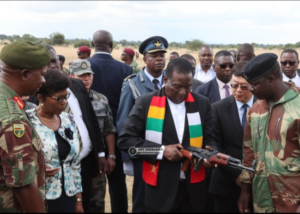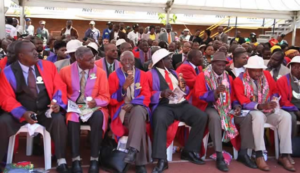ZIMBABWE’S ELECTIONS: A PRELUDE TO NATIONAL CHAOS AND STATE COLLAPSE
The recent primary elections of Zimbabwe’s ruling party, ZANU PF, have emerged as a stark forewarning of the potentially tumultuous and undemocratic national elections ahead. Characterized by violence, rigging, and authoritarian tactics, these primaries not only reflect the party’s catastrophic failings but also signal the alarming extent of state paralysis and a glaring absence of the rule of law.
The chaotic nature of these primaries raises critical questions about the integrity of the electoral process in Zimbabwe. The election was marred by severe irregularities, including allegations of abductions, rape, intimidation, and outright violence. These incidents point to a deeply rooted culture of political violence within ZANU PF, a party increasingly seen as tyrannical, corrupt, and obsessed with self-enrichment at the expense of the nation’s welfare.
The motivation behind such violent tactics seems to be the immense gains associated with holding political office in Zimbabwe. Political positions have become lucrative avenues for unchecked plundering and looting of the nation’s resources. This reality fosters a political landscape where violence and rigging are not just tools for maintaining power but essential strategies for personal enrichment.
Furthermore, the primaries served as a grim indicator of what to expect in the forthcoming national elections. The scale of state-sponsored violence is likely to escalate, with increased cases of abductions, rapes, beatings, and killings. Such violence is not random but a calculated effort to maintain a grip on power, enabling the continuous looting of fiscal and natural resources.
This systematic abuse of power extends to the judicial system, which has been compromised and militarized. The rule of law has been effectively exiled, replaced by a rule by law that serves the interests of the ruling party. Courts are used as tools of ‘lawfare’ against the opposition, which, despite its resilience and responsiveness to the welfare of the masses, faces an uphill battle against a regime determined to realize a one-party state.
The consequences of these actions are profound. They have led to a near-complete neglect of public welfare and a breakdown in reliable and affordable service delivery. For four decades, this neglect has been a hallmark of ZANU PF’s governance, directly contributing to the current state paralysis. The ruling party’s actions have not only debased the supreme law of the land but have also created an environment where lawlessness and impunity are the norm.
The upcoming national elections are not just a political event; they are a critical juncture that will determine the future trajectory of Zimbabwe. If the trends observed in the primaries are any indication, the elections risk further entrenching a regime characterized by tyrannical rule, corruption, and a blatant disregard for democratic principles. The possibility of state failure and collapse looms large, making it imperative for all stakeholders, including the international community, to closely monitor the situation and advocate for a fair, transparent, and violence-free electoral process.
The stakes are high, and the future of Zimbabwe hangs in the balance. The upcoming elections could either pave the way for a renewed commitment to democracy and the rule of law or plunge the country deeper into chaos and autocratic rule. The choice will have lasting implications not only for Zimbabwe but for the entire region.



